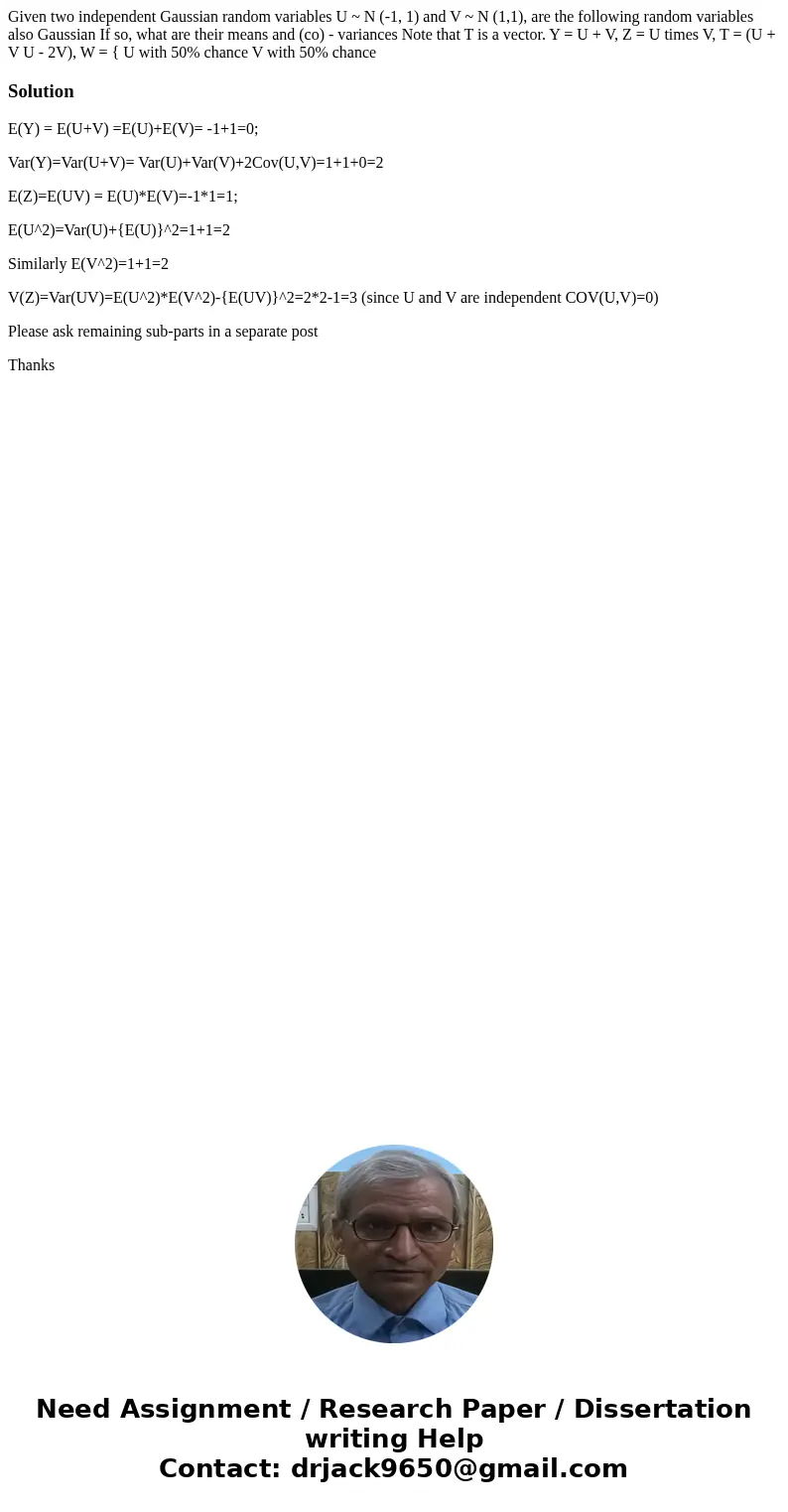Given two independent Gaussian random variables U N 1 1 and
Given two independent Gaussian random variables U ~ N (-1, 1) and V ~ N (1,1), are the following random variables also Gaussian If so, what are their means and (co) - variances Note that T is a vector. Y = U + V, Z = U times V, T = (U + V U - 2V), W = { U with 50% chance V with 50% chance
Solution
E(Y) = E(U+V) =E(U)+E(V)= -1+1=0;
Var(Y)=Var(U+V)= Var(U)+Var(V)+2Cov(U,V)=1+1+0=2
E(Z)=E(UV) = E(U)*E(V)=-1*1=1;
E(U^2)=Var(U)+{E(U)}^2=1+1=2
Similarly E(V^2)=1+1=2
V(Z)=Var(UV)=E(U^2)*E(V^2)-{E(UV)}^2=2*2-1=3 (since U and V are independent COV(U,V)=0)
Please ask remaining sub-parts in a separate post
Thanks

 Homework Sourse
Homework Sourse